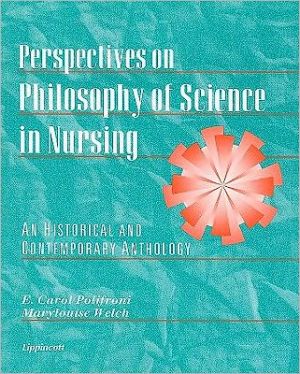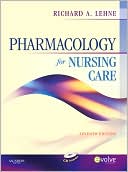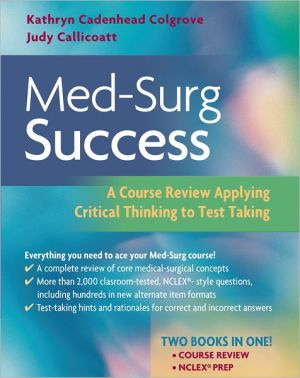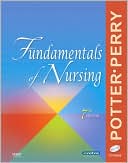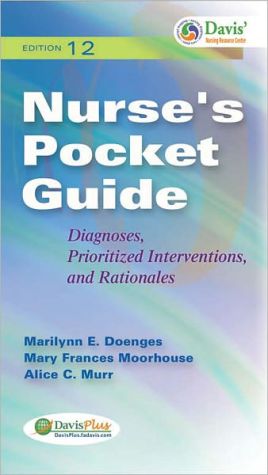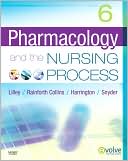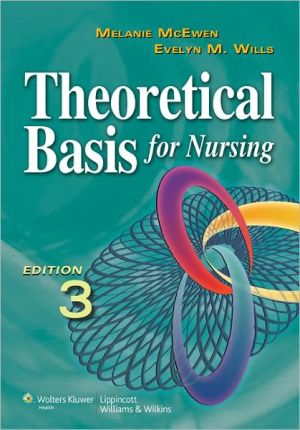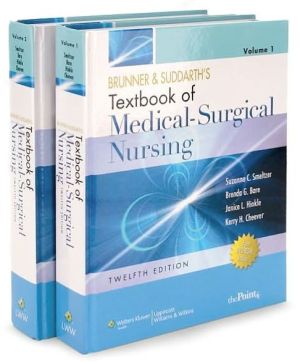Historical and Contemporary Perspectives on Philosophy of Science in Nursing: An Anthology
This book helps you provide a well-rounded doctoral curriculum. The philosophy of science is essential to the core of doctoral study in nursing. This text presents historical and contemporary thinking on this significant subject. Readers will find a wealth of information from a variety of philosophers and conceptualizers of Western science. The text's approach stimulates analysis and reflection for enhanced learning. Coverage straddles the balance between nurse and non-nurse philosophers with...
Search in google:
The philosophy of science is essential to the core of doctoral study in nursing. This text presents historical and contemporary thinking on this significant subject. Readers will find a wealth of information from a variety of philosophers and conceptualizers of Western science. The text's approach stimulates analysis and reflection for enhanced learning. Coverage straddles the balance between nurse and non-nurse philosophers with discussion and reflective questions, and includes thoughts about nursing as a science and an art. Students will learn to recognize the connection between an understanding of philosophic inquiry and scientific investigation — or research — in nursing. Compatibility: BlackBerry® OS 4.1 or Higher / iPhone/iPod Touch 2.0 or Higher /Palm OS 3.5 or higher / Palm Pre Classic / Symbian S60, 3rd edition (Nokia) / Windows Mobile™ Pocket PC (all versions) / Windows Mobile Smartphone / Windows 98SE/2000/ME/XP/Vista/Tablet PC Mary Ellen Wurzbach This is an anthology of readings related to the philosophy of science in nursing. The editors have attempted to identify important currents in the philosophy of science that have influenced prominent nurse theorists and knowledge development in nursing. The purpose is to assist the reader in an investigation of the philosophy of science in nursing. The genesis of the book was the editors' identification of a need that students expand their understanding of philosophy and the development of scientific knowledge. The editors hope that the debate on the need for plurality and diversity of philosophical perspectives in defining the focus of nursing will be continued. Students, particularly masters and doctoral students in nursing, as well as faculty who teach theory or nursing science courses will be most interested in this book. It would also be beneficial for students of nursing research since, according to the editors, philosophical orientation directs the development of the research question, the phenomena selected for study, and the choice of method for inquiry. This collection of essays is written by well known philosophers of science and nurse philosophers who have written about the philosophy of nursing science. The readings cover the topics of truth, explanation, free will or determinism, phenomenology, critical theory, science and gender, and post-modernism as they relate to both scientific philosophy and nursing. This is an outstanding addition to the nursing science literature. The major topics of the philosophy of science are addressed and their relationship to nursing science discussed. The contributors are all experts in the field. A comparison to other textbooks is notpossible because of the uniqueness of the topic. It is an excellent addition to the library of masters and doctoral students as well as faculty and students of the philosophy of nursing science.
Sect. 1Nursing and Philosophy of Science: Connections and Disconnections1Reading 1Fundamental Patterns of Knowing in Nursing12Reading 2The Focus of the Discipline of Nursing20Reading 3Nursing Values and Science: Toward a Science Philosophy25Reading 4Objectivity, Value Judgment, and Theory Choice34Reading 5"The Focus of the Discipline of Nursing": A Critique and Extension46Sect. 2Truth: An Exploration55Reading 6(Mis)conceptions and Reconceptions about Traditional Science61Reading 7Positivism and Realism70Reading 8Arguments Concerning Scientific Realism88Reading 9Dissecting the Holist Picture of Scientific Change105Reading 10The Nature of Scientific Truth126Reading 11Experimentation and Scientific Realism135Sect. 3Explanation in Science149Reading 12Nursing's Syntax Revisited: A Critique of Philosophies Said to Influence Nursing Theories154Reading 13The Pragmatics of Explanation166Reading 14The Function of General Laws in History179Reading 15Explanation in Nursing Science189Sect. 4Free Will or Determinism197Reading 16Nursing Knowledge and Human Science: Ontological and Epistemological Considerations202Reading 17Psychological Determinism and the Evolving Nursing Paradigm214Reading 18Free Will in Process Perspective223Sect. 5Phenomenology and Hermeneutics235Reading 19The Train of Thoughts in the Lectures247Reading 20A Return to Husserl and Researcher Self-Awareness263Reading 21Exposition of the Question of the Meaning of Being273Reading 22Quality of Life: A Phenomenological Perspective on Explanation, Prediction, and Understanding in Nursing Science303Reading 23A Heideggerian Phenomenologic Perspective on the Concept of the Person315Reading 24Phenomenology of Perception328Reading 25The University of the Hermeneutical Problem339Reading 26Natural Science and Hermeneutics: The Concept of Nature in Ancient Philosophy347Sect. 6Critical Theory and Feminist Critique355Reading 27Towards a Theory of Communicative Competence360Reading 28Practical Discourse in Nursing: Going Beyond Empiricism and Historicism371Reading 29Critical Theory as a Framework to Enhance Nursing Science382Reading 30The Importance of Critical Theory to Nursing: A Description Using Research Concerning Discharge Decision-Making387Reading 31The Instability of the Analytical Categories of Feminist Theory396Reading 32Voices and Paradigms: Perspectives on Critical and Feminist Theory in Nursing411Sect. 7Science and Gender423Reading 33Gender and Science427Reading 34Uncovering Gynocentric Science440Reading 35After the Neutrality Ideal: Science, Politics, and "Strong Objectivity"451Reading 36Gender and Nursing Science462Sect. 8Postmodernism and Nursing Science467Reading 37Postmodernism and Knowledge Development in Nursing471Reading 38A Treatise on Nursing Knowledge Development for the 21st Century: Beyond Postmodernism478Reading 39The Necessity for the Evolution of Multiple Paradigms for Nursing Research: A Poststructuralist Perspective491Reading 40The Dilemma of Nursing Science: Current Quandaries and Lack of Direction498Author Index507Subject Index521
\ From The CriticsReviewer: Mary Ellen Wurzbach, RN, MSN, PhD(University of Wisconsin-Oshkosh)\ Description: This is an anthology of readings related to the philosophy of science in nursing. The editors have attempted to identify important currents in the philosophy of science that have influenced prominent nurse theorists and knowledge development in nursing.\ Purpose: The purpose is to assist the reader in an investigation of the philosophy of science in nursing. The genesis of the book was the editors' identification of a need that students expand their understanding of philosophy and the development of scientific knowledge. The editors hope that the debate on the need for plurality and diversity of philosophical perspectives in defining the focus of nursing will be continued.\ Audience: Students, particularly masters and doctoral students in nursing, as well as faculty who teach theory or nursing science courses will be most interested in this book. It would also be beneficial for students of nursing research since, according to the editors, philosophical orientation directs the development of the research question, the phenomena selected for study, and the choice of method for inquiry.\ Features: This collection of essays is written by well known philosophers of science and nurse philosophers who have written about the philosophy of nursing science. The readings cover the topics of truth, explanation, free will or determinism, phenomenology, critical theory, science and gender, and post-modernism as they relate to both scientific philosophy and nursing.\ Assessment: This is an outstanding addition to the nursing science literature. The major topics of the philosophy of science are addressed and their relationship to nursing science discussed. The contributors are all experts in the field. A comparison to other textbooks is not possible because of the uniqueness of the topic. It is an excellent addition to the library of masters and doctoral students as well as faculty and students of the philosophy of nursing science.\ \ \ \ \ Mary Ellen WurzbachThis is an anthology of readings related to the philosophy of science in nursing. The editors have attempted to identify important currents in the philosophy of science that have influenced prominent nurse theorists and knowledge development in nursing. The purpose is to assist the reader in an investigation of the philosophy of science in nursing. The genesis of the book was the editors' identification of a need that students expand their understanding of philosophy and the development of scientific knowledge. The editors hope that the debate on the need for plurality and diversity of philosophical perspectives in defining the focus of nursing will be continued. Students, particularly masters and doctoral students in nursing, as well as faculty who teach theory or nursing science courses will be most interested in this book. It would also be beneficial for students of nursing research since, according to the editors, philosophical orientation directs the development of the research question, the phenomena selected for study, and the choice of method for inquiry. This collection of essays is written by well known philosophers of science and nurse philosophers who have written about the philosophy of nursing science. The readings cover the topics of truth, explanation, free will or determinism, phenomenology, critical theory, science and gender, and post-modernism as they relate to both scientific philosophy and nursing. This is an outstanding addition to the nursing science literature. The major topics of the philosophy of science are addressed and their relationship to nursing science discussed. The contributors are all experts in the field. A comparison to other textbooks is notpossible because of the uniqueness of the topic. It is an excellent addition to the library of masters and doctoral students as well as faculty and students of the philosophy of nursing science.\ \ \ 5 Stars! from Doody\ \
